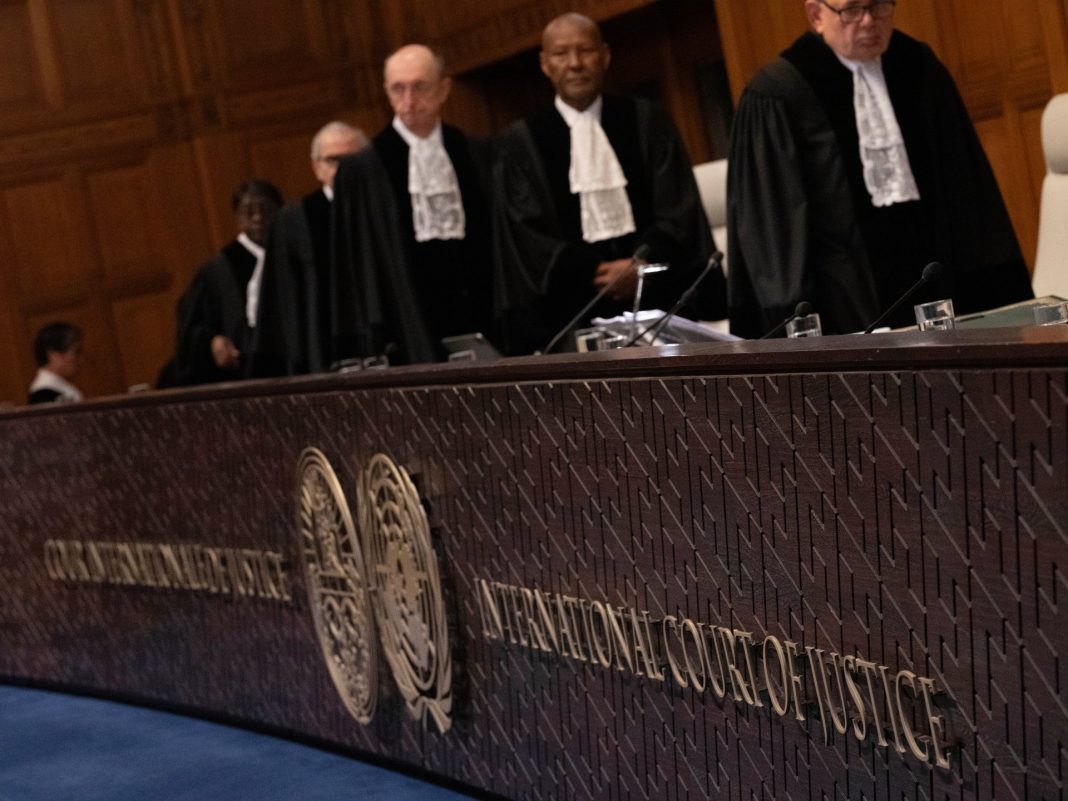Qatar tells the International Court of Justice (ICJ) that it rejects the “double standards” when international law applies to some but not to others during a hearing on Israel’s occupation of the Palestinian territories.
“Some children are deemed worthy of protection while others are killed in their thousands,” senior Qatari diplomat Mutlaq al-Qahtani said on Friday in The Hague.
“Qatar rejects such double standards. International law must be upheld in all circumstances. It must be applied to all, and there must be accountability”.
Al-Qahtani added that Israel had implemented an “apartheid regime” to maintain the “domination of Jewish Israelis over Palestinians”.
He also said the occupation is “illegal” due to it violating the Palestinian people’s right to self-determination.
The court has the “clear mandate and indeed the responsibility to remedy this unacceptable situation. The credibility of the international legal order depends on your opinion, and the stakes cannot be higher.”
Qatar, the United States and Egypt are currently mediating negotiations for a ceasefire between Israel and Hamas to stop the current war, which is taking a devastating toll on Palestinian civilians in the Gaza Strip.

Over the past week, the ICJ has been hearing the opinion of more than 50 countries on the legal implications of Israel’s occupation ahead of the court issuing a nonbinding opinion.
The 15-judge panel has been asked to review Israel’s “occupation, settlement and annexation, … including measures aimed at altering the demographic composition, character and status of the Holy City of Jerusalem, and from its adoption of related discriminatory legislation and measures”.
But Qatar echoed similar statements from several countries in calling out Israel’s policy as a breach of international law, including South Africa, which also referred to the occupation as “apartheid”.
Representatives from several other countries, including Pakistan, Norway, Indonesia and the United Kingdom, spoke at Friday’s hearing.
Pakistani Minister for Law and Justice Ahmed Irfan Aslam said that while Israel had tried to make its occupation of the Palestinian territories irreversible, history has shown that change is possible, referring to the withdrawal of French settlers from Algeria in 1962.
He added that a two-state solution “must be the basis for peace”.
Norway’s representative said developments on the ground “give reason to ask whether the occupation is turning into a de facto annexation”, which is prohibited under international law.
Indonesian Foreign Minister Retno Marsudi, who said she left the G20 meeting in Brazil to address the ICJ personally, stated: “I stand before you to defend justice against a blatant violation of international humanitarian law that is being committed by Israel.”
Marsudi added that Israel’s “unlawful occupation” should not be normalised or recognised, all actions that stop the Palestinian people’s right to self-determination “shall be unlawful” and it is clear that its “apartheid regime” is in breach of international law.
The British representative was the only person to divert from what other countries had said on Friday and instead aligned with the US, who called on the court to reject issuing an advisory opinion.
The representative said that while Israel’s occupation is illegal, it is a “bilateral dispute”, and issuing an opinion would affect the security framework led by the United Nations Security Council.
The hearings are, in part, a push by Palestinian officials to get international legal institutions to investigate Israel’s occupation, especially in light of the current war on Gaza.
During the past four months and after Hamas’s October 7 attacks in southern Israel, which killed 1,139 Israelis, Israel has conducted a military campaign in Gaza, which has resulted in the deaths of more than 29,000 Palestinians.
In the occupied West Bank, settler violence has increased, and world leaders have issued sanctions to try to penalise and curb the attacks.
Israel, which is not attending the hearing, has said the court proceedings could be harmful to achieving some kind of negotiated settlement.







